Jack Kerouac: God is Pooh Bear
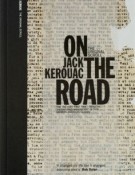 Kerouac’s comment that God is Pooh-Bear has caused a lot of confusion over the years, with many people claiming that Kerouac thinks that God is a fiction. But to believe that Jack Kerouac felt that God was a figment of our imaginations is to terribly misread him. The so called “King of the Beats” felt God intensely, within each and every hobo, wino, and hard-luck soul he met…
Kerouac’s comment that God is Pooh-Bear has caused a lot of confusion over the years, with many people claiming that Kerouac thinks that God is a fiction. But to believe that Jack Kerouac felt that God was a figment of our imaginations is to terribly misread him. The so called “King of the Beats” felt God intensely, within each and every hobo, wino, and hard-luck soul he met…
If You Meet Jesus On the Road, Kill Him
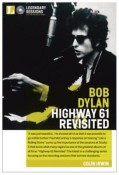 A famous old piece of Zen wisdom says: “If you meet Buddha on the road, kill him.” There are a couple of reasons why we are called to take Buddha out. The most commonly cited reason is that the prophet in the road is not really Buddha at all, but a figment of our imaginations—a psychological projection of the person we want Buddha to be. To approach the real Buddha we have to…
A famous old piece of Zen wisdom says: “If you meet Buddha on the road, kill him.” There are a couple of reasons why we are called to take Buddha out. The most commonly cited reason is that the prophet in the road is not really Buddha at all, but a figment of our imaginations—a psychological projection of the person we want Buddha to be. To approach the real Buddha we have to…
Isabelle Eberhardt & The Test of Freedom
 The writer and wandering traveler Isabelle Eberhardt was an extraordinary woman. The remains of her book Dans l’Ombre Chaude de l’Islam — In the Hot Shade of Islam was once called “one of the strangest human documents that a woman has given to the world.” In her early twenties, Eberhardt wrote the following: “Vagrancy is deliverance and life on the open road is the essence of freedom. To have the courage to…
The writer and wandering traveler Isabelle Eberhardt was an extraordinary woman. The remains of her book Dans l’Ombre Chaude de l’Islam — In the Hot Shade of Islam was once called “one of the strangest human documents that a woman has given to the world.” In her early twenties, Eberhardt wrote the following: “Vagrancy is deliverance and life on the open road is the essence of freedom. To have the courage to…
Miguel de Unamuno, Jesus & Solitude
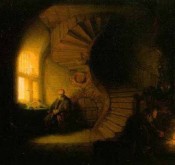 As well all know, Jesus liked using parables to teach. Sometimes these parables are explicit, such as in the parable of the prodigal son, and other times they are implicit. For Jesus, water is a natural element that is a parable in itself. For example, if we look at Jesus’s life as depicted in the Gospels, we see that it echoes the flowing in and receding back of the ocean’s tides. Jesus would repeatedly flow out into…
As well all know, Jesus liked using parables to teach. Sometimes these parables are explicit, such as in the parable of the prodigal son, and other times they are implicit. For Jesus, water is a natural element that is a parable in itself. For example, if we look at Jesus’s life as depicted in the Gospels, we see that it echoes the flowing in and receding back of the ocean’s tides. Jesus would repeatedly flow out into…
Kahlil Gibran & An Ass Loaded With Books
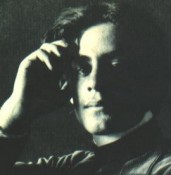 Since his death, Kahlil Gibran has inspired countless spiritual progressives, including artists like John Lennon who paraphrased Gibran’s famous verse, “Half of what I say is meaningless, but I say it so that the other half may reach you,” in the Beatle’s song Julia, from the White Album. In A Second Treasury of Kahlil Gibran there is one passage that is especially poignant…
Since his death, Kahlil Gibran has inspired countless spiritual progressives, including artists like John Lennon who paraphrased Gibran’s famous verse, “Half of what I say is meaningless, but I say it so that the other half may reach you,” in the Beatle’s song Julia, from the White Album. In A Second Treasury of Kahlil Gibran there is one passage that is especially poignant…
Martin Luther King & The Moral Effort
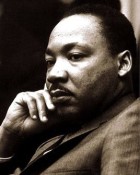 Leo Tolstoy says that we all can wake up to a real, happy, and peaceful life, as it exists in our consciences (God’s Kingdom within), if we just make the moral effort. That was easy for him to say. While Tolstoy might have inspired Martin Luther King and Gandhi with such words, few of us think we are capable of the moral effort of a Gandhi or MLK. Can’t we slide into Heaven by just…
Leo Tolstoy says that we all can wake up to a real, happy, and peaceful life, as it exists in our consciences (God’s Kingdom within), if we just make the moral effort. That was easy for him to say. While Tolstoy might have inspired Martin Luther King and Gandhi with such words, few of us think we are capable of the moral effort of a Gandhi or MLK. Can’t we slide into Heaven by just…
Why Christopher Hitchens Was Not an Atheist
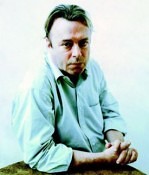 After professional provocateur Christopher Hitchens published God is Not Great: How Religion Poisons Everything he became the patron saint of 21st century atheism. But was Hitchens really an atheist? Here at LivingHour.org we always suspected no; that Hitchen’s diatribes were directed toward simply the literal sects of religion and those who anthropomorphize God as an old man in the clouds, living in a gated community with pearly gates…
After professional provocateur Christopher Hitchens published God is Not Great: How Religion Poisons Everything he became the patron saint of 21st century atheism. But was Hitchens really an atheist? Here at LivingHour.org we always suspected no; that Hitchen’s diatribes were directed toward simply the literal sects of religion and those who anthropomorphize God as an old man in the clouds, living in a gated community with pearly gates…
Did Jesus Laugh? — The Humor of Christ
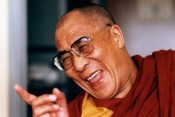 The Dalai Lama of Tibet is said to have an extraordinary laugh, one that rises frequently and joyfully from deep within his body. This is something we don’t attribute to Jesus much: laughter. We get so caught up with Jesus’s end game and the “man of sorrows” image that we lose sight of how much fun he must have been to be around. After all, Jesus certainly wouldn’t have been welcomed to the dinner table of so many sinners and outcasts had he been a bore…
The Dalai Lama of Tibet is said to have an extraordinary laugh, one that rises frequently and joyfully from deep within his body. This is something we don’t attribute to Jesus much: laughter. We get so caught up with Jesus’s end game and the “man of sorrows” image that we lose sight of how much fun he must have been to be around. After all, Jesus certainly wouldn’t have been welcomed to the dinner table of so many sinners and outcasts had he been a bore…
Graham Greene, Jesus & Ways of Escape
 The Catholic writer Graham Greene famously summed up his life as a search for “Ways of Escape.” He said that his abundant writing and travels were simply a means to escape the panic fear, madness, and melancholia of contemporary life. Green’s life summation goes a long way in helping to explain some events found in the canonical Gospels of Jesus the Christ…
The Catholic writer Graham Greene famously summed up his life as a search for “Ways of Escape.” He said that his abundant writing and travels were simply a means to escape the panic fear, madness, and melancholia of contemporary life. Green’s life summation goes a long way in helping to explain some events found in the canonical Gospels of Jesus the Christ…
Mahatma Gandhi & Eternal Things
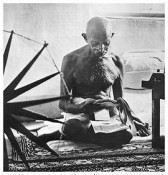 India’s Mahatma Gandhi once delivered an adage that is probably as well known as St. Paul’s, and that is: “Live as if you were to die tomorrow. Learn as if you were to live forever.” It is by living intensely and learning joyfully that we grab the reigns of our eternal natures in Christ. Human experience and knowledge are not temporal: we cannot truly see the feelings…
India’s Mahatma Gandhi once delivered an adage that is probably as well known as St. Paul’s, and that is: “Live as if you were to die tomorrow. Learn as if you were to live forever.” It is by living intensely and learning joyfully that we grab the reigns of our eternal natures in Christ. Human experience and knowledge are not temporal: we cannot truly see the feelings…
Yeats & Christ’s Second Coming
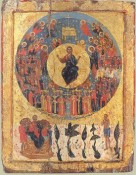 When will the Second Coming occur? This seems to be a question of utmost importance to many Christians today, as we struggle through seemingly endless economic and environmental crises. The question of the Second Coming though has been front and center in the minds of Christians ever since Jesus shuffled off his mortal coil. John didn’t help matters much in penning Revelations, the New Testament book that causes the literal Bible reader to suddenly have a change of heart…
When will the Second Coming occur? This seems to be a question of utmost importance to many Christians today, as we struggle through seemingly endless economic and environmental crises. The question of the Second Coming though has been front and center in the minds of Christians ever since Jesus shuffled off his mortal coil. John didn’t help matters much in penning Revelations, the New Testament book that causes the literal Bible reader to suddenly have a change of heart…
Teilhard de Chardin & Faith in the World
 The 20th century Jesuit priest Pierre Teilhard de Chardin was a remarkable figure in that he was both a highly trained scientist and defender of the Christian faith—someone who realized that the entire structure of Christ’s mythology had to be reworked to fit new scientific discoveries. Having forged that new structure through the crucible of his own experiences and knowledge, he not only strengthened his faith in humankind’s divinity but his faith in the Father’s kingdom here on earth, as it is in heaven…
The 20th century Jesuit priest Pierre Teilhard de Chardin was a remarkable figure in that he was both a highly trained scientist and defender of the Christian faith—someone who realized that the entire structure of Christ’s mythology had to be reworked to fit new scientific discoveries. Having forged that new structure through the crucible of his own experiences and knowledge, he not only strengthened his faith in humankind’s divinity but his faith in the Father’s kingdom here on earth, as it is in heaven…
Meister Eckhart & Life is a Boiling Up
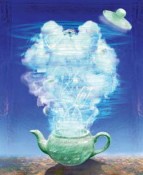 An indomitable spirit, with seemingly limitless energy and passion, Meister Eckhart’s entire life can be seen as a personification of his realization of the living God. Eckhart wrote: “Life is a boiling up and pouring out of itself, scalding and melting and bubbling within itself, light penetrating light. For life is as it were a gushing up, a thing welling up in itself, pouring a part of itself into another part, as it runs forth and bubbles over beyond itself…
An indomitable spirit, with seemingly limitless energy and passion, Meister Eckhart’s entire life can be seen as a personification of his realization of the living God. Eckhart wrote: “Life is a boiling up and pouring out of itself, scalding and melting and bubbling within itself, light penetrating light. For life is as it were a gushing up, a thing welling up in itself, pouring a part of itself into another part, as it runs forth and bubbles over beyond itself…
Albert Camus & Common Decency
 In Albert Camus’ novel The Plague, there is a curious character named Tarrou who organizes the volunteer sanitary teams in the city of Oran, a town afflicted by the bubonic plague. He also assists the lead doctor in his rounds helping patients. Tarrou does this for no other reason he says than his code of morals, which he defines as “common decency”. A little bit later in the book, though, he mentions to the doctor that he is driven by…
In Albert Camus’ novel The Plague, there is a curious character named Tarrou who organizes the volunteer sanitary teams in the city of Oran, a town afflicted by the bubonic plague. He also assists the lead doctor in his rounds helping patients. Tarrou does this for no other reason he says than his code of morals, which he defines as “common decency”. A little bit later in the book, though, he mentions to the doctor that he is driven by…
The Wisdom of the Talking Heads
 In the world of Progressive Christianity and the SBNR (in its various forms), there seems to be a growing belief that we are on the cusp of a new age of spiritual enlightenment. This has engendered an enthusiasm much like in the 1960s, when the “spiritual but not religious” of that time thought they were ushering in the Age of Aquarius—a time when peace, love, and understanding would reign. Unfortunately that didn’t happen…
In the world of Progressive Christianity and the SBNR (in its various forms), there seems to be a growing belief that we are on the cusp of a new age of spiritual enlightenment. This has engendered an enthusiasm much like in the 1960s, when the “spiritual but not religious” of that time thought they were ushering in the Age of Aquarius—a time when peace, love, and understanding would reign. Unfortunately that didn’t happen…
The Three Laughing Monks
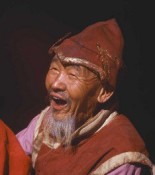 In China, there is the legend of the three laughing monks. They are also today sometimes referred to as the three laughing saints. The monks only ever did one thing: on entering a new village, they would stand in the market place and start laughing. They would laugh with their whole being (mind, body, heart, and soul) and suddenly people would wake up to the Life and Kingdom of God that surrounded them. A crowd would soon gather and…
In China, there is the legend of the three laughing monks. They are also today sometimes referred to as the three laughing saints. The monks only ever did one thing: on entering a new village, they would stand in the market place and start laughing. They would laugh with their whole being (mind, body, heart, and soul) and suddenly people would wake up to the Life and Kingdom of God that surrounded them. A crowd would soon gather and…
Robert Wright & The Evolution of God
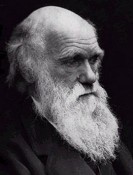 Robert Wright is the author of a new book “The Evolution of God,” which approaches its subject from the logical standpoint that, more often than not, we have created our Gods to match our own evolving self-image and needs. Wright refers to himself as a materialist in that he thinks that the answers to religious questions lie in the facts on the ground. All good so far. But a problem arises in how Wright discerns what is fact, and what he chooses to include and not include in forming his opinions. For example…
Robert Wright is the author of a new book “The Evolution of God,” which approaches its subject from the logical standpoint that, more often than not, we have created our Gods to match our own evolving self-image and needs. Wright refers to himself as a materialist in that he thinks that the answers to religious questions lie in the facts on the ground. All good so far. But a problem arises in how Wright discerns what is fact, and what he chooses to include and not include in forming his opinions. For example…
Simon and Garfunkel & God
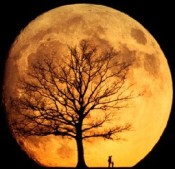 And the moon rose over an open field”¦ So it goes in Simon & Garfunkel’s classic song “America”. These 8 simple words are perhaps the most eloquent turn of phrase in all popular music—and a lyric that should serve as a strong metaphor for Progressive Christians and all those who seek the pathway to God. When the moon is close the horizon, hovering just above the open fields or cityscapes, it appears incredibly large, as though we could almost touch it. Yet as it rises in the sky it becomes…
And the moon rose over an open field”¦ So it goes in Simon & Garfunkel’s classic song “America”. These 8 simple words are perhaps the most eloquent turn of phrase in all popular music—and a lyric that should serve as a strong metaphor for Progressive Christians and all those who seek the pathway to God. When the moon is close the horizon, hovering just above the open fields or cityscapes, it appears incredibly large, as though we could almost touch it. Yet as it rises in the sky it becomes…
Dostoevsky & Jesus
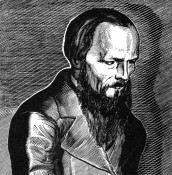 In Fyodor Dostoevsky’s parable of The Grand Inquisitor, Jesus reappears on Earth during the time of the Spanish Inquisition. Although the crowds adore him, he is promptly thrown in prison and sentenced to death. While in his cell, Jesus is visited by the Grand Inquisitor who says that he must kill him, even though he knows that he is truly Jesus Christ. The Inquisitor defends Jesus’s death sentence because: Instead of giving a firm foundation for setting the conscience of people at rest for ever, you chose all that is exceptional, vague and enigmatic…
In Fyodor Dostoevsky’s parable of The Grand Inquisitor, Jesus reappears on Earth during the time of the Spanish Inquisition. Although the crowds adore him, he is promptly thrown in prison and sentenced to death. While in his cell, Jesus is visited by the Grand Inquisitor who says that he must kill him, even though he knows that he is truly Jesus Christ. The Inquisitor defends Jesus’s death sentence because: Instead of giving a firm foundation for setting the conscience of people at rest for ever, you chose all that is exceptional, vague and enigmatic…
The Long Arc of the Moral Universe
 American Presidents and other public leaders sometimes hit the refrain that “the arc of the moral universe is long, but it bends toward justice”. Nearly always they attribute the quote to Martin Luther King, who invoked the long arc of the moral universe in relationship to African-Americans’ struggles for equal rights. Martin Luther King though did not coin this phrase about the moral universe. He was quoting from the passionate Unitarian Minister, and 19th century progressive Christian, Theodore Parker, who once said, I do not pretend to understand the moral universe, the arc is…”
American Presidents and other public leaders sometimes hit the refrain that “the arc of the moral universe is long, but it bends toward justice”. Nearly always they attribute the quote to Martin Luther King, who invoked the long arc of the moral universe in relationship to African-Americans’ struggles for equal rights. Martin Luther King though did not coin this phrase about the moral universe. He was quoting from the passionate Unitarian Minister, and 19th century progressive Christian, Theodore Parker, who once said, I do not pretend to understand the moral universe, the arc is…”
Tom Robbins on Religion & God
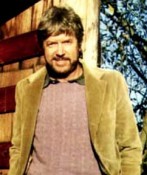 Tom Robbins is the kind of author who people often say you either love or hate. All things considered, that is probably the best kind of author to be, as it reflects that level of truth telling which always inspires radically opposing emotions in others. Robbins is also the kind of author that we at The Living Hour would identify as an excellent example of the Progressive Christian, even though he would undoubtedly not describe himself in such terms. Regardless, Robbins displays the kind of attitude, wisdom, and joie de vivre that is worthy of emulation…
Tom Robbins is the kind of author who people often say you either love or hate. All things considered, that is probably the best kind of author to be, as it reflects that level of truth telling which always inspires radically opposing emotions in others. Robbins is also the kind of author that we at The Living Hour would identify as an excellent example of the Progressive Christian, even though he would undoubtedly not describe himself in such terms. Regardless, Robbins displays the kind of attitude, wisdom, and joie de vivre that is worthy of emulation…
Life is NOT Difficult
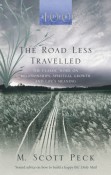 The late M. Scott Peck begins his wildly successful bestseller “The Road Less Traveled” with the following pronouncement: Life is difficult. This is the great truth, one of the greatest truths—it is a great truth because once we see this truth, we transcend it. Peck’s train of thought finds its lineage in the Buddha’s 4 Noble Truths, the first of which is: all life is suffering. Although Jesus and Buddha share much common ground, on this issue they diverge. Jesus’s gospel does not teach that “life is difficult” but rather “we MAKE life difficult” both for ourselves and others…
The late M. Scott Peck begins his wildly successful bestseller “The Road Less Traveled” with the following pronouncement: Life is difficult. This is the great truth, one of the greatest truths—it is a great truth because once we see this truth, we transcend it. Peck’s train of thought finds its lineage in the Buddha’s 4 Noble Truths, the first of which is: all life is suffering. Although Jesus and Buddha share much common ground, on this issue they diverge. Jesus’s gospel does not teach that “life is difficult” but rather “we MAKE life difficult” both for ourselves and others…
The Kingdom of God is Within You
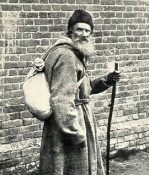 The great Russian author Leo Tolstoy is a monumental figure in the world of literature. His epic novel War and Peace is unrivaled in its breadth and scope. But Tolstoy was more than just a fiction writer. He was a keen observer of the human condition and arguably the most progressive Christian in Russia during the 19th and early 20th century. His later writings on the Christian faith influenced spiritual progressives in the both the West and the East, including famous figures such as Martin Luther King and Gandhi. Leo Tolstoy’s most influential work on Progressive Christian faith is The Kingdom of God is Within You…
The great Russian author Leo Tolstoy is a monumental figure in the world of literature. His epic novel War and Peace is unrivaled in its breadth and scope. But Tolstoy was more than just a fiction writer. He was a keen observer of the human condition and arguably the most progressive Christian in Russia during the 19th and early 20th century. His later writings on the Christian faith influenced spiritual progressives in the both the West and the East, including famous figures such as Martin Luther King and Gandhi. Leo Tolstoy’s most influential work on Progressive Christian faith is The Kingdom of God is Within You…
Common Sense Christianity
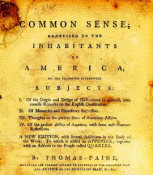 The old saying “there is nothing common about common sense” has never rung so true as it does today. We live in a course and relativist age where the noble drive for fairness and balance has been misdirected toward conflating opinions with facts, and where common sense lies buried beneath a rubble of truthiness. That being the case, it might be a good idea to return to the writer of Common Sense, Thomas Paine, for a little refresher on reasonable thinking. Wrongly accused of atheism by the orthodox Christians of his time (and, later on, a strident Teddy Roosevelt), Thomas Paine is among the many American figures who form the bedrock…
The old saying “there is nothing common about common sense” has never rung so true as it does today. We live in a course and relativist age where the noble drive for fairness and balance has been misdirected toward conflating opinions with facts, and where common sense lies buried beneath a rubble of truthiness. That being the case, it might be a good idea to return to the writer of Common Sense, Thomas Paine, for a little refresher on reasonable thinking. Wrongly accused of atheism by the orthodox Christians of his time (and, later on, a strident Teddy Roosevelt), Thomas Paine is among the many American figures who form the bedrock…
